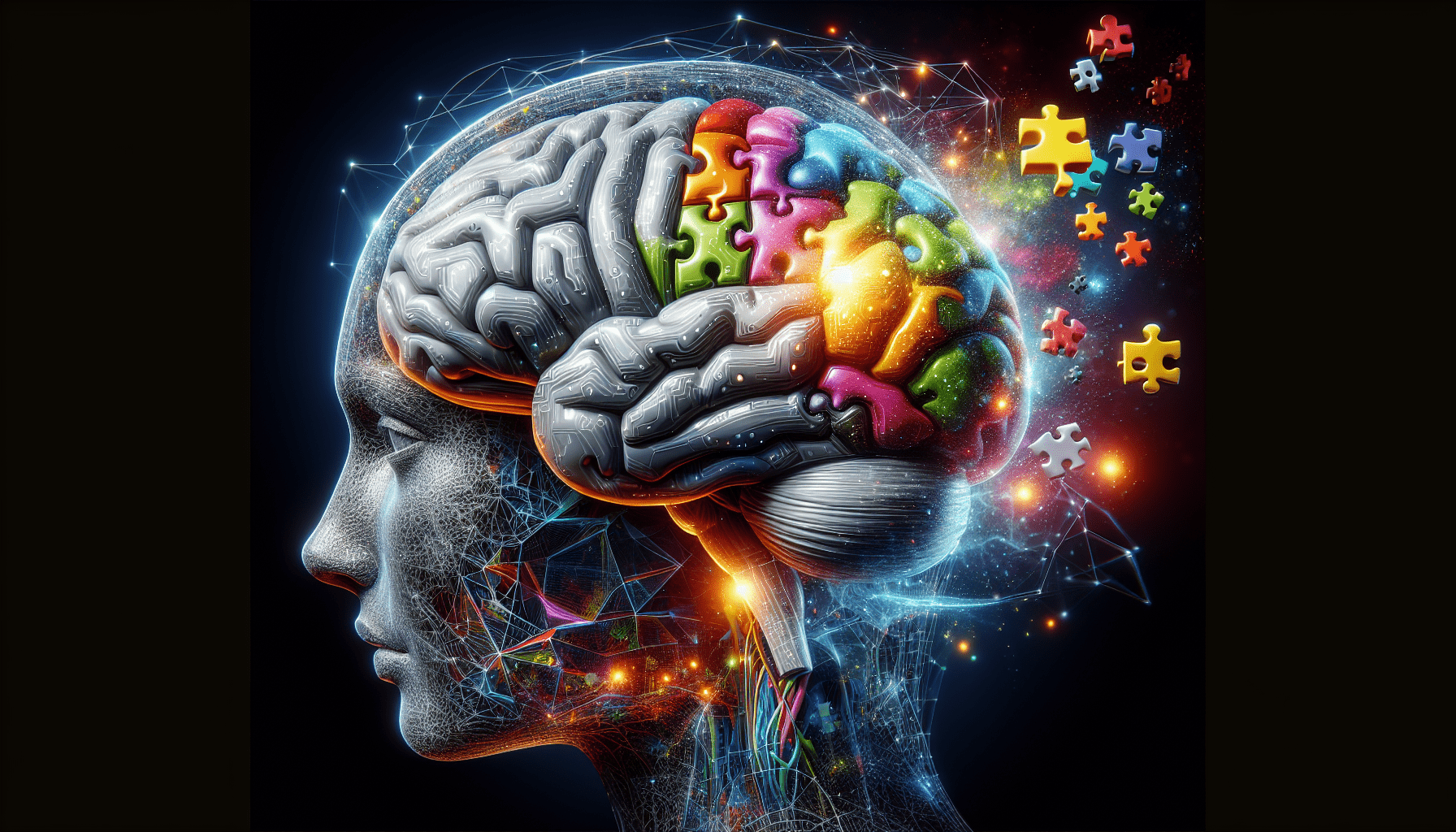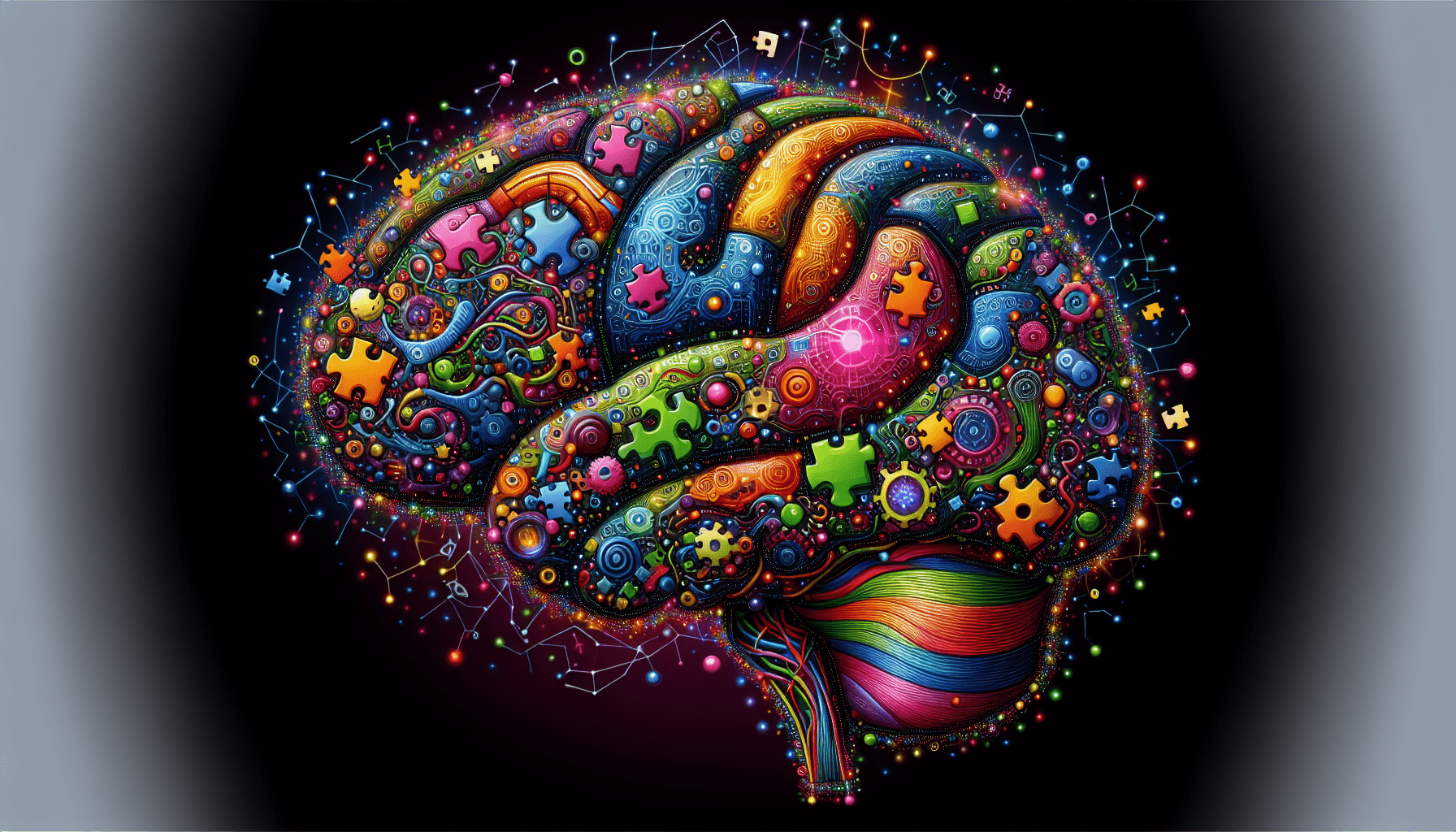Can brain training games actually help prevent age-related memory loss? This is a question that has become increasingly relevant as the global population continues to age. Maintaining cognitive health is a topic close to many people's hearts, and brain training games offer an intriguing solution. Let's explore how these games might keep your brain fit as a fiddle and why they are stirring interest among scientists and the general public alike.

Understanding Age-Related Memory Loss
Before we dive into brain training games, it's essential to understand what constitutes age-related memory loss. It's common for older adults to experience some decline in memory, which is often considered a normal part of aging. However, distinguishing these changes from more serious conditions like dementia is crucial.
What Happens to Your Brain as You Age?
As you age, your brain undergoes several changes, just like any other part of your body. The overall volume of the brain may shrink, nerve cells may reduce in number, and communication between neurons can slow down. This can result in slower processing speeds and difficulties in remembering new information. But fear not, these changes don't necessarily mean a loss of intelligence or the ability to learn new things.
Symptoms of Age-Related Memory Loss
While everyone experiences memory lapses occasionally, age-related memory loss may present itself more consistently. Common symptoms include forgetting names or appointments and taking longer to learn new tasks. Again, an important note is that these symptoms do not typically interfere significantly with daily life, unlike more severe cognitive disorders.
Brain Training Games: What Are They?
Brain training games are designed to exercise your cognitive abilities, aiming to enhance your mental performance. These games can vary widely, from puzzles and memory exercises to problem-solving and strategic thinking games.
Types of Brain Training Games
- Memory Games: These tasks often require you to recall information, identify patterns, or remember sequences.
- Logic and Strategy Puzzles: These encourage you to plan ahead and use problem-solving skills.
- Attention and Concentration Exercises: Tasks focus on improving your ability to concentrate and maintain attention over time.
- Language Games: Exercises involve verbal skills to stimulate language processing areas in your brain.
Accessibility and Popularity
With advancements in technology, brain training games have become widely accessible through mobile apps and online platforms. Their popularity has surged, partly because they can be easily integrated into daily routines. Gaming companies claim that only a few minutes a day can result in improvements, making them an attractive option for those seeking an enjoyable way to enhance their mental fitness.
The Science Behind Brain Training Games
The effectiveness of brain training games in preventing age-related memory loss isn't without debate. Delving into scientific research can help you separate fact from fiction.
What the Research Says
Numerous studies have examined whether brain training games can positively impact cognitive function. Some research indicates that these games can improve specific skills practiced during the game. For example, if you regularly engage in memory-based tasks, you might experience improvement in memory performance for those tasks.
Transferability of Cognitive Skills
The real question is whether these improvements transfer to everyday tasks and general cognitive function. Some researchers argue that playing strategy games, for instance, might temporarily enhance strategic thinking, but how much this affects your overall brain health in the long term remains uncertain. While some studies show promising results, pinpointing a definitive answer requires further research.
Neuroplasticity: Your Brain’s Ability to Rewire
A key component underpinning the potential effectiveness of brain training games is neuroplasticity – your brain’s ability to adapt and change in response to new experiences. When you engage in brain training exercises, new neural connections can form, potentially leading to enhanced cognitive performance and resilience against age-related decline.
Benefits of Brain Training Games
Even though the full extent of their effectiveness is still under investigation, brain training games present several appealing benefits, particularly for those concerned about aging.
Improved Cognitive Functions
Many users report improvements in cognitive functions such as memory, attention, and processing speed, attributed to the consistent mental challenges provided by these games.
Increased Engagement and Motivation
The fun and competitive nature of these games can be highly engaging, keeping you motivated to stay mentally active. People are more likely to stick with an enjoyable activity, thus contributing to long-term mental health maintenance.
Stress Reduction
Stress is a known factor in cognitive decline, and engaging in brain games can act as a stress reliever. They provide a focused and enjoyable distraction, allowing your mind to unwind.

Tips for Choosing the Right Brain Training Game
Selecting the right game can make all the difference in how effective and enjoyable the experience is. Here are some tips to help you choose wisely:
Personal Interests and Preferences
Engage in games that you find genuinely enjoyable. If you love puzzles, a game like Sudoku might be perfect for you. Remember, the key is consistent engagement.
Level of Challenge
Look for games that offer varying levels of difficulty, allowing you to start easy and gradually increase the challenge as your skills improve. This prevents boredom and encourages advancement.
Tracking Progress
Some apps offer tools to track your progress over time. These features can provide motivation by visually showing improvements, even if they’re gradual.
Recommendations and Reviews
Consider checking reviews and expert recommendations for games that have shown benefits in scientific studies. This can help ensure you're spending your time effectively.
Incorporating Brain Training into Your Life
Making brain training a consistent part of your routine can enhance its potential benefits. Here are some ideas on how to integrate these activities into your daily life.
Establishing a Routine
Set aside a specific time each day for brain training. Even dedicating just 15-20 minutes can make a difference. Consistency is key when it comes to making lasting improvements.
Combine with Physical Exercise
Physical exercise is well-documented to enhance brain health, too. Combining this with brain training can provide comprehensive benefits and improve overall well-being.
Social Engagement
Playing brain games with friends or family can add a social component, making the exercises more enjoyable and competitive. Social interaction is also vital for cognitive health as you age.
Alternative Cognitive Techniques
While brain training games can offer benefits, they're not the only tools available for maintaining and improving cognitive health.
Learning New Skills
Engaging in new activities, such as learning a foreign language or musical instrument, can stimulate your brain in ways similar to brain training games. This not only keeps your mind sharp but also enriches your life experience.
Mindfulness and Meditation
Practices like mindfulness and meditation have shown effectiveness in improving attention and reducing stress, which can, in turn, support memory and cognitive function.
Dietary Considerations
A balanced diet rich in antioxidants, omega-3 fatty acids, and other brain-boosting nutrients can complement your cognitive exercises. Nutrients such as B vitamins and iron are essential for maintaining healthy brain function.
Final Thoughts
Brain training games hold promise as a fun and engaging way to potentially combat age-related memory loss. While more research is needed to fully understand their efficacy, they offer several cognitive and mental health benefits when incorporated into a balanced lifestyle. Remember to choose games that you enjoy and maintain a consistent routine to get the most out of your brain training efforts.
By asking the right questions and staying informed, you can take proactive steps to keep your mind sharp and healthy as the years pass. Whether through brain games, new learning experiences, or a nutritious diet, the choice is yours to protect and enhance your cognitive health.
